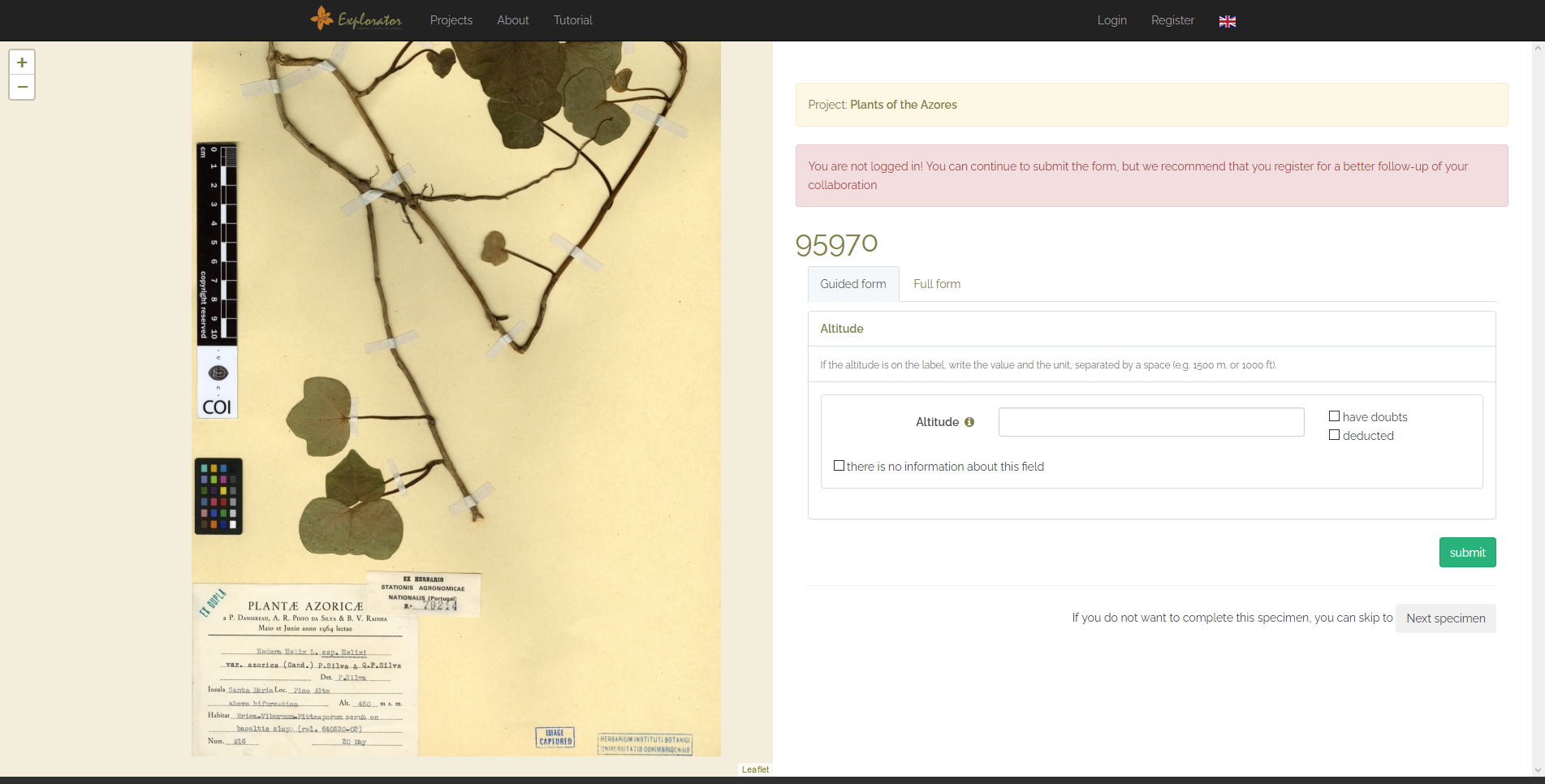
The Herbarium of the University of Coimbra, Portugal, celebrated its 140th anniversary in 2020, but it is only since 2002 that the collection has been moving online to make sure that these priceless resources will be available to future generations. As the digitisation is a painstakingly slow process, the University has developed a platform to enable citizen scientists to contribute to the transcription of information to the database. The COI Catalogue, as it is known internationally, contains approximately 800,000 specimens, many of which are of great historical interest. The new crowdsourcing platform – EXPLORATOR – allows registered citizens to update the descriptive labels within the database workflow, with which it is fully integrated. The data validated by the platform is progressively added to the master database and therefore made available through the online catalogue.
EXPLORATOR was developed by the Herbarium COI team within the framework of PORBIOTA, the Portuguese e-Infrastructure for information and research on biodiversity, which manages LifeWatch Portugal. It provides each user with an image and a form to be completed one field at a time. A help icon is available for each field to provide support at every stage of the process. When a value is submitted, the platform verifies whether different values have been submitted for that field and issues an alert for discrepancies.
This validation function allows less experienced citizen scientists working in EXPLORATOR to start with fields that are easily identified and helps them become familiar with the herbarium specimens and the type of information required. When a given number of responses are validated as correct, the user is given access to the next levels which unlock more complex fields. The architecture therefore encourages learning and greater proficiency, as well as avoiding inadvertent errors.
User proficiency levels determine the assignation of confidence values to the data entered. Validation occurs when the sum of points for a value reaches 60. Answers from an expert user are worth 50 points and those from a basic user are only worth 10, so the same value would have to be submitted by six basic users to equal the work of one expert. As an additional safeguard, manual validation by an administrator is also possible.
The EXPLORATOR platform currently accounts for 300 registered users and a total of 140,000 submissions, which relate to 36,000 validated fields. As only 12 percent of the catalogue materials have been processed so far, it is hoped that more citizen scientists will step forward and help speed up the work of the PORBIOTA e-infrastructure consortium in storing and managing biodiversity data that is essential for the national agenda for biodiversity research.